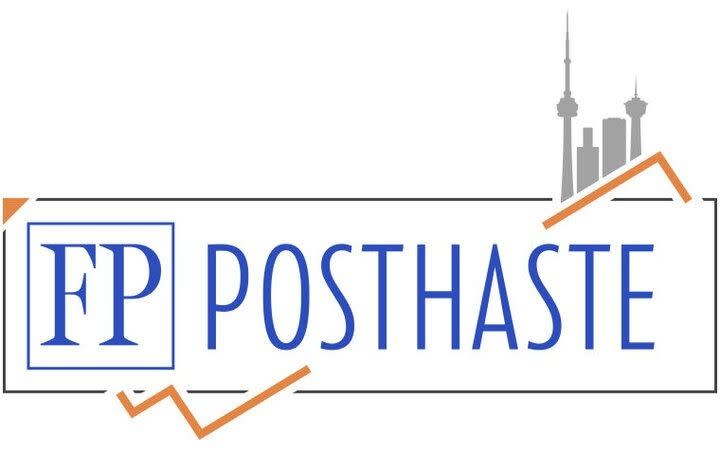Posthaste: Canada's home prices are only halfway to the bottom, warn these economists


Good Morning!
Spring isn’t that far away, according to the groundhogs, and with signs the Bank of Canada may be winding up its interest rate hikes, the horizon has been looking a bit more hopeful for our battered housing market.
But economists at Oxford Economics think we are only halfway through this correction, and prices — already down 14 per cent since the peak in February 2022 — will fall another 16 per cent by the middle of this year. It predicts that when home prices do hit bottom they will be down 30 per cent.
Declines will vary across the country, of course, with the cities that saw the steepest gains suffering the biggest declines. Prices in Hamilton, Ont., for example, are seen dropping 34 per cent and Kitchener-Cambridge-Waterloo, 33.6 per cent. Western cities should fare better, with Calgary prices expected to fall 11.8 per cent and Regina, 10.7 per cent.

As dire as that sounds it will still leave prices slightly above their pre-pandemic levels in February 2020, said Oxford.
“The seasonal pick-up in resale activity this spring will be a key litmus test in a recessionary environment. If distressed homeowners boost listings faster than sales, months of inventory will shift further to a buyers’ market and prices will fall even lower,” said economists Tony Stillo, Michael Davenport and Cassidy Rheaume.
Which brings us to Oxford’s other scenarios.
If global supply chains mend faster than expected, easing inflation and boosting investor confidence, home prices may only fall 27 per cent peak to trough, said Oxford.
In their moderate downside scenario, the housing correction jolts household wealth and consumer confidence, creating a negative feedback loop that drives prices lower. In this case home prices could fall 34 per cent.
Then there is the worst case, in which a sharper correction shocks the financial system and credit supply. The economy takes a severe knock, and housing prices collapse 48 per cent back to 2014 levels.

Whatever the scenario, “housing is leading the economy into recession,” said the economists.
Residential investment has shrunk by 13 per cent since the Bank began raising rates, and Oxford predicts it will fall 19 per cent by the third quarter of 2023.
“This would be slightly larger than the average decline during recessions since 1970,” they said.
Oxford’s base case calls for Canada’s GDP to contract -1.3 per cent in 2023 if home prices fall 30 per cent. But in the worst case, if housing prices are almost cut in half, Oxford predicts GDP will shrink 9.9 per cent peak to trough.
_____________________________________________________________
Was this newsletter forwarded to you? Sign up here to get it delivered to your inbox.
_____________________________________________________________________


Expectations these days can turn on a dime. Proof of that can be seen Friday when a shock blockbuster jobs report out of the United States quickly dispelled hopes that the U.S. Federal Reserve would pivot any time soon.
“Simply put, the perception that the Fed’s aggressive rate-hiking campaign was hobbling the economy’s job-creating engine blew up in flames with the latest jobs report,” wrote Oxford Economics senior economist Bob Schwartz in a note after the data came out on Feb. 3.
Nonfarm payrolls increased 517,000 in January, more than double forecasts. The unemployment rate dropped to 3.4 per cent, the lowest in more than half a century.
Gains of this size were unexpected and markets quickly reassessed, judging that the resilient job market would mean more tightening from the Fed.
Earlier in the week, after the Fed’s rate hike and chair Jerome Powell’s comments that “the disinflationary process has begun,” stocks were rallying, yields were falling and traders were pricing in a terminal rate at 4.89 per cent and cuts by September.
Then came the jobs report. By late Friday financial markets were betting that the peak rate would go above 5 per cent and that the Fed would hold it there for longer.
Stock markets slumped and Treasury yields surged.
The jobs report “was an incredible surprise and it raises a lot of questions about what the Fed is going to do next,” Kristina Hooper, chief global market strategist at Invesco, told Reuters. “What I think is causing some of the volatility is markets trying to make sense of how the Fed will perceive this.”
Food price inflation is examined by the federal government’s standing committee on agriculture and agri-food with testimony from the grocery and agriculture industries
The special committee on the Canada-People’s Republic of China relationship meets
Today’s data: Ivey Purchasing Managers Index, U.S. Global Supply Chain Pressure Index
Earnings: Tyson Foods, TMX Group, PrairieSky Royalty, TFI International, Pinterest, Finning International
___________________________________________________

_______________________________________________________
Freeland pledges fiscal prudence to avoid feeding inflation even as demands for spending grow
Canada’s railways defy critics by pulling off one of the biggest grain hauls on record
Big Tech is back, but be careful about going all in on rate-sensitive sectors
Howard Levitt: Can you be fired without warning and more common employment law questions
If you have questions about real estate investment trusts or REITs, FP Answers can help. How do you invest in them, how are they taxed and how do they fit in a balanced porfolio? Julie Cazzin and Allan Norman gives you a few things to think about before adding a REIT, or any other themed investment such as oil, tech, bitcoin, etc., to your portfolio.
____________________________________________________
Today’s Posthaste was written by Pamela Heaven, @pamheaven, with additional reporting from The Canadian Press, Thomson Reuters and Bloomberg.
Have a story idea, pitch, embargoed report, or a suggestion for this newsletter? Email us at posthaste@postmedia.com, or hit reply to send us a note.

 Yahoo Finance
Yahoo Finance 



